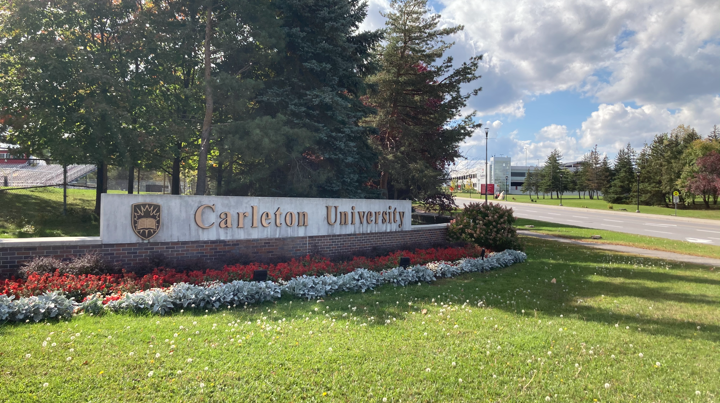Carleton University, which is among post-secondary institutions across Canada grappling with Indigenous identity appropriation in academia, held a town hall recently about its policies on verifying identities for hiring, admissions and awards.
“Universities are navigating the rise in fraudulent claims to Indigenous identities,” Benny Michaud, Carleton’s director of the Centre for Indigenous Support and Community Engagement, said in an announcement about the policies when they were released in October.
The policies were created to “verify Indigenous identity for employment competitions, academic programs and awards, grants, bursaries and scholarships that are limited to Indigenous candidates,” the university says.
The session for faculty and staff was the second of four focused on the issues and reasons behind the policies.
“The issue of settlers claiming Indigenous identity is a problem that we’ve been faced with for some time, so I was glad to learn more about how Carleton is taking steps to make sure we honour and recognize Indigenous identity,” said Journalism program head Allan Thompson, who attended the session.
“Anyone who has paid attention to the news will realize there has been an increase in cases involving so-called “Pretendians” who make a claim to Indigenous identity and as a result, take away opportunities that are meant for someone else,” he added. “So I’m glad that Carleton has taken steps to codify how we as an institution go about verifying claims to Indigenous identity, particularly when making decisions about hiring or giving awards.”
Many universities across the country that have adopted new policies around verifying Indigenous identity for employment and student awards.
Last year, Carleton rescinded an honorary degree that had been awarded in 2019 to Mary Ellen Turpel-Lafond, a former judge and B.C. representative for children and youth.
Turpel-Lafond’s Indigenous identity had come under scrutiny after a CBC investigation alleged inconsistencies in her claim, noting that it didn’t appear to match the historical record. The Law Society of British Columbia said in July 2024 that a DNA test showed Turpel-Lafond “most likely” had Indigenous heritage.
Universities are navigating the rise in fraudulent claims to Indigenous identities.
Benny Michaud, Director, Centre for Indigenous Support and Community Engagement at Carleton University
In May, McGill University released a new policy to support the validation of “claims of Indigenous membership/citizenship in situations where that claim is directly relevant to a person’s employment by the University.”
Indigenous forms of identity and belonging have been drawing national attention in other realms as well.
Last week, Alberta MP Randy Boissonnault resigned from the federal cabinet after allegations about his business dealings and Indigenous identity were called into question.
Following Boissonnault’s resignation was news from B.C. that federal Liberal candidate Madison Fleischer, who is running in the Cloverdale-Langley City byelection, was unable to support her claim of self-identifying as Métis.
The wider conversation about Indigenous identity and belonging has gone beyond politics and academia, with a 2023 high profile CBC News investigation of American singer-songwriter Buffy Sainte-Marie, who claimed to be a Cree woman born in Canada, concluding that she was of Italian and mostly English ancestry.
About 20 Carleton faculty and staff attended the town hall Friday, organized by the Centre for Indigenous Support and Community Engagement and the Office of the Associate Vice-President, Indigenous Teaching, Learning and Research.
The next town hall for Carleton faculty and staff is on Jan. 28, 2025.




